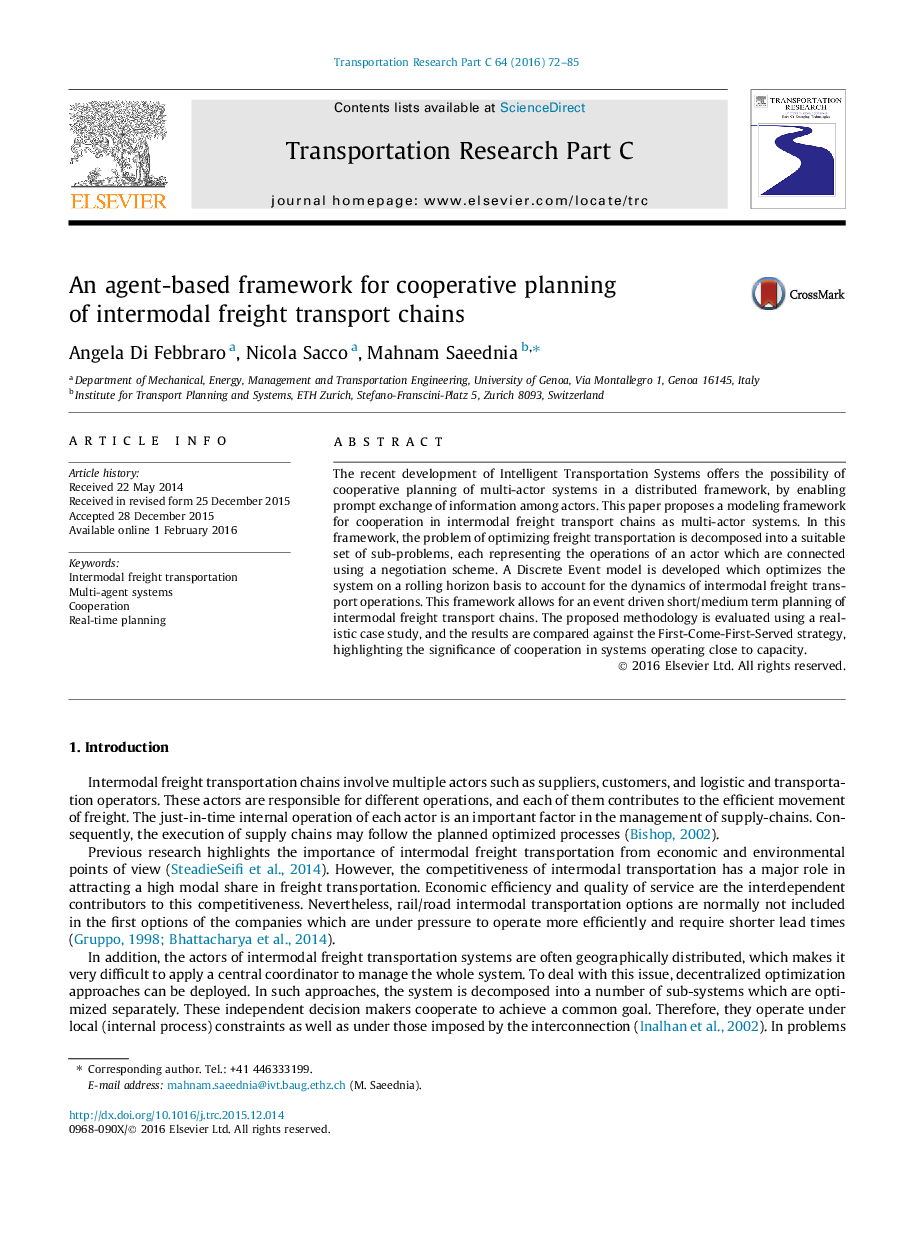| Article ID | Journal | Published Year | Pages | File Type |
|---|---|---|---|---|
| 526273 | Transportation Research Part C: Emerging Technologies | 2016 | 14 Pages |
•Develops an agent-based modeling framework for planning of intermodal freight transport chains.•Each actor keeps its independent decision-making process.•The dynamics of operations are modeled using discrete event systems.•Cooperation improves efficiency significantly in systems operating close to capacity.
The recent development of Intelligent Transportation Systems offers the possibility of cooperative planning of multi-actor systems in a distributed framework, by enabling prompt exchange of information among actors. This paper proposes a modeling framework for cooperation in intermodal freight transport chains as multi-actor systems. In this framework, the problem of optimizing freight transportation is decomposed into a suitable set of sub-problems, each representing the operations of an actor which are connected using a negotiation scheme. A Discrete Event model is developed which optimizes the system on a rolling horizon basis to account for the dynamics of intermodal freight transport operations. This framework allows for an event driven short/medium term planning of intermodal freight transport chains. The proposed methodology is evaluated using a realistic case study, and the results are compared against the First-Come-First-Served strategy, highlighting the significance of cooperation in systems operating close to capacity.
